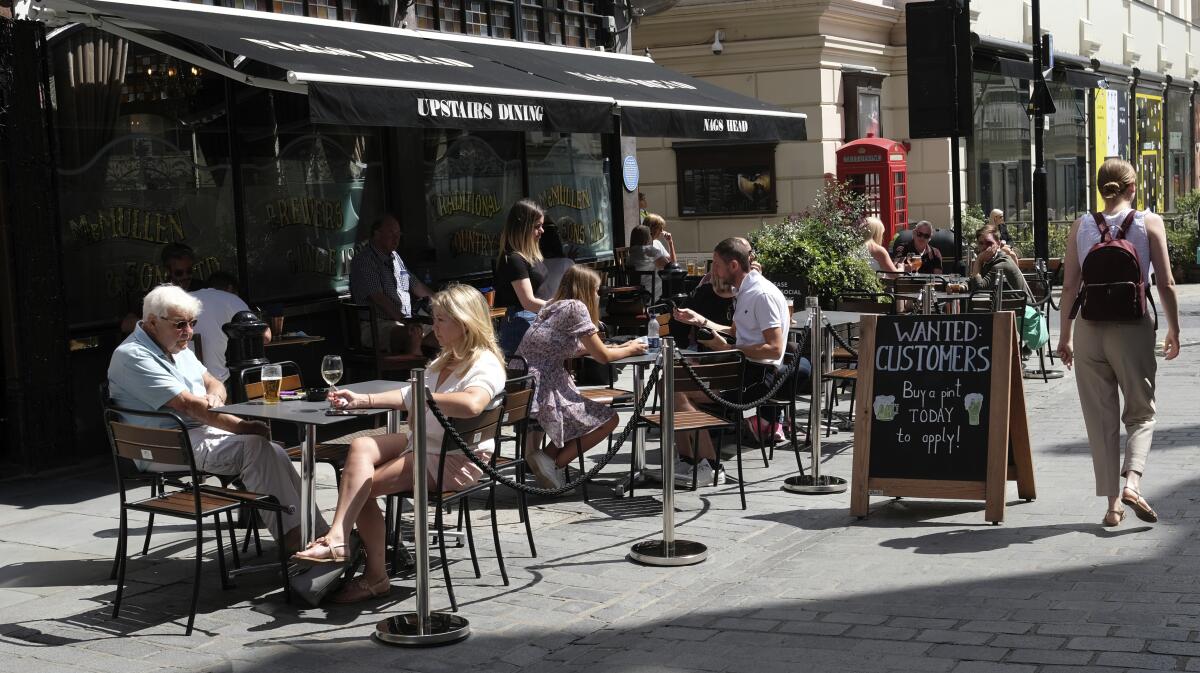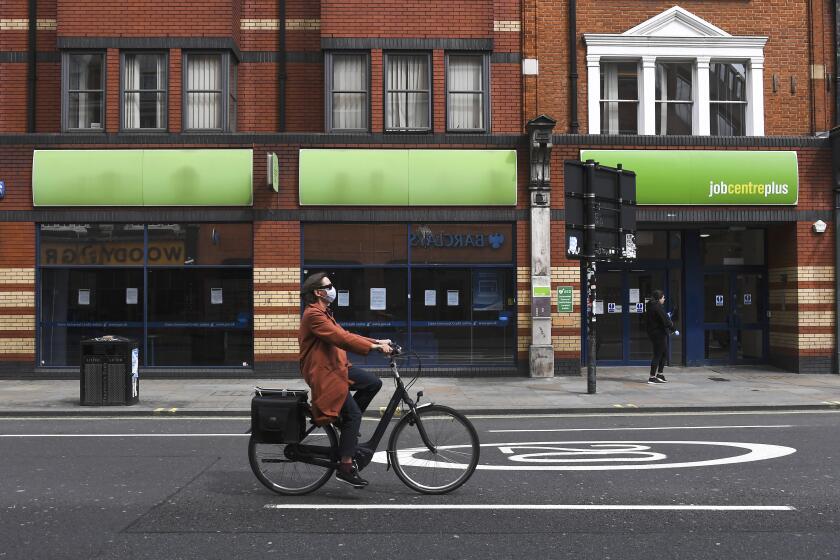Britain inks trade deal with Japan as talks with EU teeter dangerously

- Share via
LONDON — Britain secured its first major post-Brexit trade deal Friday, signing an agreement with Japan just as discussions with the European Union appeared to be teetering on the brink of collapse.
The deal, which has so far been agreed on only in principle and for which details are thin, will increase commerce with Japan by around $19 billion (U.S.), the British government said.
The government said British businesses would benefit from tariff-free trade on 99% of exports to Japan and from having a gateway to the rest of the Asia-Pacific region.
Supporters of Brexit, including Prime Minister Boris Johnson, have said that one of the benefits of leaving the European Union is that it allows Britain to negotiate its own trade deals rather than being bound by EU-negotiated deals, which apply to the entire bloc.
“The agreement we have negotiated — in record time and in challenging circumstances — goes far beyond the existing EU deal [with Japan], as it secures new wins for British businesses in our great manufacturing, food and drink, and tech industries,” said Britain’s international trade secretary, Liz Truss, who pointed to trade concessions by Japan on English sparkling wine and Wensleydale cheese.
But skeptics say Britain’s new deal with Japan is little different from the one it enjoyed as a member of the EU.
The British economy shrank by a fifth in the second quarter, marking the deepest coronavirus-related slump among the world’s seven leading economies.
They also say nothing would mitigate the losses Britain would suffer if it failed to negotiate a new trade deal with the EU itself by the end of December, when tariff-free trade between the two sides, under former EU terms, is set to expire. Such a scenario would see tariffs and other impediments suddenly imposed on trade between Britain and the 27-member bloc. Though both sides would suffer from the new barriers, most economists think Britain would be worse hit.
In 2019, exports to Germany, Europe’s largest economy, accounted for 10% of all Britain’s exports by value. By contrast, exports to Japan equaled just 1.9%.
The talks with the EU have not collapsed yet and discussions are set to resume on Monday in Brussels.
But tensions have mushroomed in the past few days after the British government said it was preparing legislation to nullify parts of its already-agreed-upon withdrawal deal with the EU, which set a framework for a new trade pact and allowed Britain officially to exit the EU in orderly fashion last January.
Breaking News
Get breaking news, investigations, analysis and more signature journalism from the Los Angeles Times in your inbox.
You may occasionally receive promotional content from the Los Angeles Times.
The shock announcement could also derail any hopes of Johnson’s government to negotiate a trade deal with the United States. House Speaker Nancy Pelosi warned Britain that there would be “absolutely no chance” of such a deal if it violated its international obligations with respect to the Northern Ireland peace process, which were addressed by the existing EU withdrawal agreement. Congress has to ratify all U.S. trade deals.
Even before the current standoff, trade discussions between Britain and the EU had made little progress, with the two sides far apart on business regulations, the extent to which Britain can support certain industries and over the EU fishing fleet’s access to British waters.
The renewed Brexit uncertainties come as the British economy gradually recovers from a deep recession caused by the shutdown of businesses during its coronavirus lockdown. The Office for National Statistics said the economy grew by a month-on-month rate of 6.6% in July as many sectors, including pubs and restaurants, started reopening. Despite the increase, the economy remains 11.7% smaller than it was in February.
More to Read
Sign up for Essential California
The most important California stories and recommendations in your inbox every morning.
You may occasionally receive promotional content from the Los Angeles Times.














